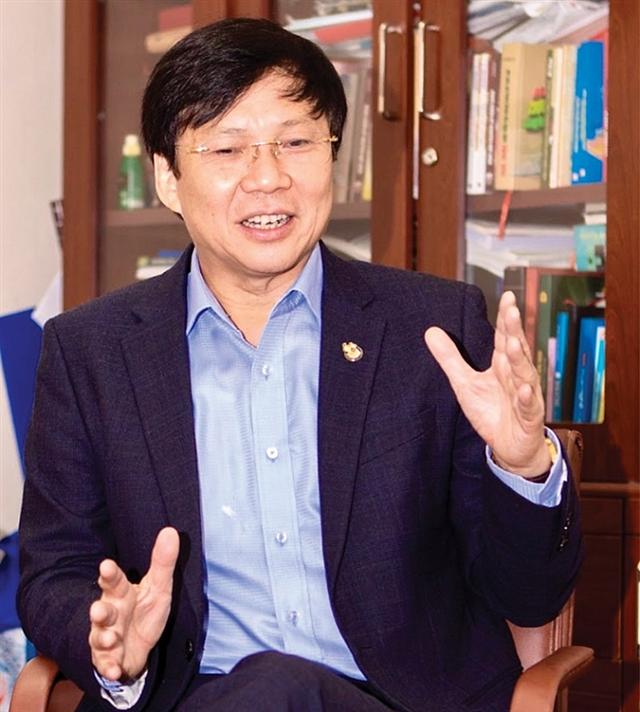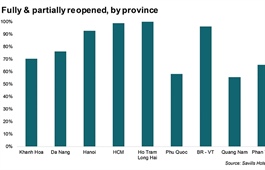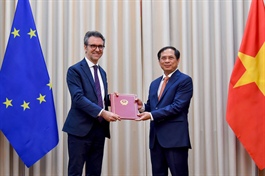Tightening links between business and the press
Tightening links between business and the press
The global health crisis has shown the urgency of the Vietnamese press continuing to transform with modern times. On the occasion of Vietnam Journalists’ Day, Ho Quang Loi, permanent vice chairman of the Vietnam Journalists’ Association, talked with VIR’s Phuong Hao about the press and its developmental trend in the digital age.

Ho Quang Loi, permanent vice chairman of the Vietnam Journalists’ Association
|
How do you evaluate the relationship between the press and businesses here?
Over the years, they have accompanied each other well. The press continues to illustrates the trade environment, outstanding results, and good models and experiences. With domestic and international information, it helps businesses understand the trend and society’s development.
Besides these, the press also contributes to adjustment of policies to build a healthy environment, and works as a bridge to connect the state and businesses, and businesses with the community.
In fact, successful businesses often pay attention to the relationship with the press along with bringing into full play their internal elements.
The vibrant activities of businesses are the richest and most vivid source of information for the press. It provides a platform for enterprises worldwide to speak out about their problems, such as outdated or inappropriate policies.
It is also a place to reflect the needs of customers, through which businesses can adjust their development policies so that they can develop.
Therefore, the relationship between the press and business is a healthy, objective, and increasingly sharing relationship. The development of the press also contributes to development of enterprises.
Over the years, Vietnamese media agencies have promoted tasks to self-finance their operation as a business. Which advantages and disadvantages come from such trends in the developing media economy?
For many years, with the trend of economic autonomy, press agencies must simultaneously realise the dual goal of political duties and ensuring the operation of the press as well as the livelihoods of their staff. This is a very difficult issue for many press agencies today, especially in the context of the COVID-19 pandemic.
It has shown that the amount of people accessing YouTube and other social networks has increased dramatically, but press revenue has decreased. Press with copyrighted products operating on tech platforms of network providers get no benefit from their own products. This is an inadequacy and unfair to the press, requiring adjustments at the state level.
In the digital media era, the amount of readers or followers can help the newspaper attain more revenue from advertising and from those platforms sharing the news. I think the story of the press economy should be comprehensive in the fields that the press is involved in.
What should press agencies do in order to carry out their economic tasks in the context of financial autonomy?
We are living in the digital age with smartphones and iPads on hand and fierce competition from social networks, so increasing application of IT is an indispensable path for the modern press. We need to profoundly transform ourselves on a large scale regarding producing it.
At present, many fields and units in socio-economic activities have found their way, and so must the press. In the world, many such agencies have almost transformed so that they do not have to rely entirely on publishing or advertising anymore. Not only the western press, but the People’s Daily of China for example has also followed that direction.
People have integrated all the information and updated all the news that people need on mobile platforms. They promote the creation of products that society needs and get revenue from that. So, from a newspaper that only released three million publications a day, they have increased the number of readers via mobile phones up to 650 million per day. In epidemics or in difficult times and facing urgent challenges, society needs more information and it is the opportunity of the press to answer that demand.
VIR has been honoured to receive praise from the Party, the state, and also from international organisations while continuously extending its influence on domestic and foreign business communities. What do you think of the group’s current development direction?
In the age of digital communication, the race for information is no longer important, but reliability and authenticity is. In this regard, the press has done better than social networks. And in recent times, many newspapers have been paying attention to fostering in-depth and analytical writers.
The basic elements of traditional journalism are no longer top requirements for press quality but what, why, and how is what audiences still need from newspapers. It requires the ability of evaluating, and the analysis of reporters and other writers. And to do that, writers need to have deep knowledge, dedication, and morality. In that regard, VIR has been performing well in these tasks.
























